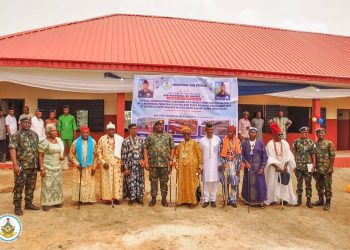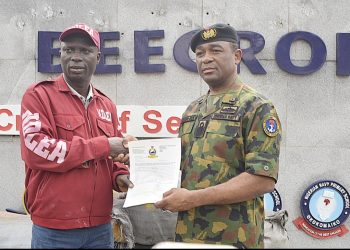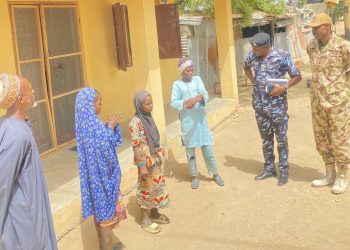By Nkechi Eze
In an era defined by evolving security threats and shifting geopolitical realities, the importance of unified and strategic military education across Africa has never been more pressing. Against this backdrop, the National Defence College (NDC), Abuja, recently played host to the 2025 African Defence Colleges’ Strategic Level Seminar on Professional Military Education—an event that not only deepened collaboration among African defence institutions but also laid a foundation for long-term integration and interoperability on the continent.
The three-day seminar, which drew defence scholars, commandants, and security experts from various African countries and the United States, concluded in Abuja with strong calls for harmonised curricula, joint training exercises, and strengthened regional security mechanisms.
Speaking at the closing ceremony, the Commandant of the National Defence College, Rear Admiral James Okosun, hailed the forum as a success in its mission to bolster professional military education and facilitate meaningful partnerships among African defence colleges. He highlighted the need for African institutions to work more closely together, exchange strategic knowledge, and adopt a collective approach to contemporary security challenges.
Rear Admiral Okosun echoed the collaborative ethos championed by Nigeria’s Chief of Defence Staff, General Christopher Gwabin Musa, stating that the Nigerian Armed Forces’ strategy is deeply rooted in cooperation and joint action. “This seminar has not only broadened our understanding of common security threats but also nurtured strong networks of trust, learning, and mutual support,” he said.
He recommended the establishment of a dedicated working group to develop blueprints for curriculum alignment and cross-border military exercises among African defence colleges. According to him, such an initiative would be instrumental in ensuring strategic consistency and operational synergy across the continent.
Delivering a goodwill message on behalf of the Honourable Minister of Defence, the Director of the Department of Joint Services at the Ministry of Defence, Mrs. Bosade Olaniyi, addressed participants on the significance of the forum. Representing the Minister, who was absent due to official duties related to the national mourning of the late former President of Zimbabwe, Robert Mugabe, Mrs. Olaniyi described the seminar as timely and essential.
She said the gathering served as an important platform for strengthening professional military education, forging multilateral defence ties, and preparing Africa’s military institutions to respond effectively to 21st-century threats. “This seminar has brought together visionary defence leaders at a time when Africa must act decisively to address insecurity through joint strategies and institutional resilience,” she noted.
Mrs. Olaniyi underlined the Nigerian government’s unwavering commitment to regional peace, multilateral security, and the professional development of Africa’s defence architecture. She praised the partnership between the National Defence College and the Africa Center for Strategic Studies, describing their coordination and vision as exemplary.
“As we return to our various countries, we must ensure the conversations held here translate into policy, planning, and practical outcomes. Africa’s security trajectory depends on our shared resolve and the decisions we make today,” she added.
Throughout the seminar, delegates engaged in extensive dialogue on curriculum standardisation, leadership development, and cooperative security strategies. The forum served not only as a platform for intellectual exchange but also as a stepping stone toward a future where African defence colleges speak with one voice and act in concert to protect their nations and regions.
With renewed commitments, fresh perspectives, and a stronger sense of solidarity, the 2025 African Defence Colleges’ Seminar has set the tone for a more integrated and proactive military education ecosystem, one that is well equipped to tackle Africa’s complex security landscape.

















